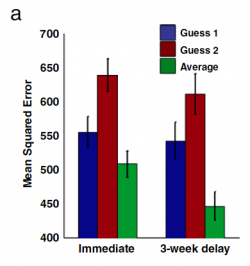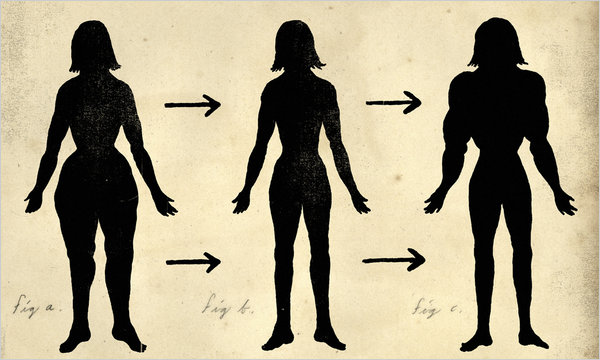Miles Davis
Miles Davis (Playboy interview, 1962):
Then they claim I ignore the audience while I’m playing. Man, when I’m working, I know the people are out there. But when I’m playing, I’m worrying about making my horn sound right.
And they bitch that I won’t talk to people when we go off after a set. That’s a damn lie. I talk plenty of times if everything’s going like it ought to and I feel right. But if I got my mind on something about my band or something else, well, hell, no, I don’t want to talk. When I’m working I’m concentrating. I bet you if I was a doctor sewing on some son of a bitch’s heart, they wouldn’t want me to talk.
Anybody wants to believe all this crap they hear about me, it’s their problem, not mine. Because, look, man, I like people. I love people! I’m not going around telling everybody that. I try to say that my way – with my horn. Look, when I was a boy, ten years old, I got a paper route and it got bigger than I could handle because my customers liked me so much. I just delivered papers the best I could and minded my business, the same way I play my horn now. But a lot of the people I meet now make me sick.
In high school, I was the best in the music class on the trumpet. I knew it and all the rest knew it - but all the contest first prizes went to the boys with blue eyes. It made me so mad I made up my mind to outdo anybody white on my horn. If I hadn’t met that prejudice, I probably wouldn’t have had as much drive in my work. I have thought about that a lot. I have thought that prejudice and curiosity have been responsible for what I have done in music.
I told them an artist’s first responsibility was to himself. I said if he kept getting upset with what other people think he ought to do, he never would get too far, or he sure wouldn’t last. I tried to make them see how I had worked all my life to play myself and then to get a band worth people paying to hear. I said that a lot of times when people in a club wanted to talk to me, I needed to be worrying about something about my band. They said they understood. I hope they did.
Crow Jim is what they call that. Yeah. It’s a lot of the Negro musicians mad because most of the best-paying jobs go to the white musicians playing what the Negroes created. But I don’t go for this, because I think prejudice one way is just as bad as the other way. I wouldn’t have no other arranger but Gil Evans – we couldn’t be much closer if he was my brother. And I remember one time when I hired Lee Konitz, some colored cats bitched a lot about me hiring an ofay in my band when Negroes didn’t have work. I said if a cat could play like Lee, I would hire him, I didn’t give a damn if he was green and had red breath.
I won’t play nowhere I know has the kind of audiences that you waste your breath to play for. I’m talking about them expense-account ofays that use music as a background for getting high and trying to show off to the women they brought. They ain’t come to hear good music. They don’t even know how to enjoy themselves. They drink too much, they get loud, they got to be seen and heard. They’ll jump up and dance jigs and sing. They ain’t got no manners - don’t pay their women no respect. What they really want is some Uncle Tom entertainment if it’s a Negro group on the stand. These are the kind will holler, “Hey, boy, play Sweet Georgia Brown!” You supposed to grin and play that. I hate to play in a place full of those kind of squares so bad that if there wasn’t nobody else to play to, I’d invest in some more property and just stay home and collect rents. I can’t stand dumb-ass people not respecting the other customers that have come to hear the music. Sometimes one table like that has bugged me so that when I get home or to my hotel, I walk the floor because I can’t sleep.
I told you I ain’t going to play nowhere in the South that Negroes can’t come. But I ain’t going to play nowhere in the North that Negroes don’t come. It’s one of two reasons they won’t, either because they know they ain’t wanted, or because they don’t like the joint’s regular run of music. Negroes ain’t got as much money to throw away in nightclubs as white people. So a club that Negroes patronize, you can figure that everybody that goes there comes expecting to hear good music.
About the first thing I can remember as a little boy was a white man running me down a street hollering “Nigger! Nigger!” My father went hunting him with a shotgun. Being sensitive and having race pride has been in my family since slave days. The slave Davises played classical string music on the plantations.
I grew up with an allowance, and I had a big newspaper route. I saved most of what I made except for buying records. But when I first left home as a musician, I used to spend all I made, and when I went on dope, I got in debt. But after I got enough sense to kick the habit, I started to make more than I needed to spend unless I was crazy or something.
Now I got a pretty good portfolio of stock investments, and I got this house - it’s worth into six figures, including everything in it. My four kids are coming up fine. When the boys get in from school, I want you to see them working out on the bags in our gym downstairs. I keep myself in shape and teach the kids how to box. They can handle themselves. Ain’t nothing better that a father can pass along. Then I got my music, I got Frances, and my Ferrari - and our friends. I got everything a man could want - if it just wasn’t for this prejudice crap. It ain’t that I’m mad at white people, I just see what I see and I know what’s happening. I am going to speak my mind about anything that drags me about this Jim Crow scene. This whole prejudice mess is something you would feel so good if it could just be got rid of, like a big sore eating inside of your belly.

